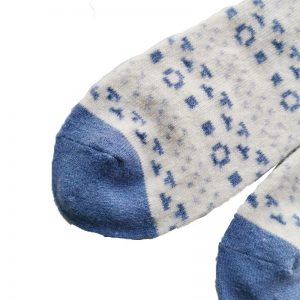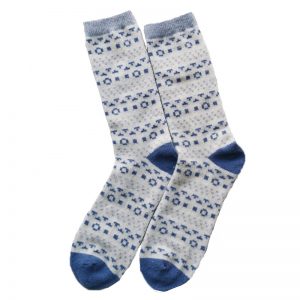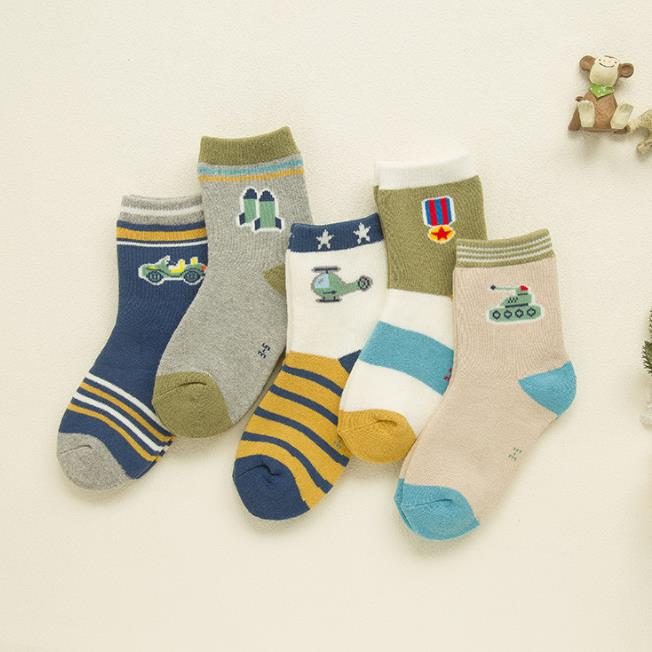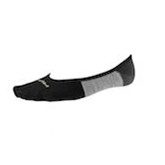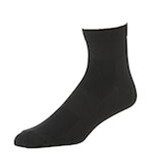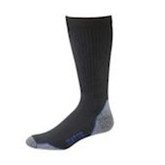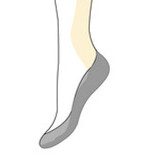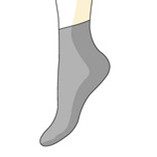Wool socks are indeed eco-friendly and sustainable for several reasons:
- Renewable Resource: Wool comes from sheep, which are a renewable resource. Sheep produce a new fleece each year, making wool a sustainable and naturally replenishing material.
- Biodegradable: Wool is biodegradable, meaning it can break down naturally and return to the environment without causing harm. When disposed of properly, wool socks will not contribute to long-lasting waste in landfills.
- Low Carbon Footprint: The production of wool has a relatively low carbon footprint compared to many synthetic materials. It requires minimal energy-intensive processes during its production and processing.
- Natural Fiber: Wool is a natural fiber that doesn’t involve the use of petroleum-based chemicals or synthetic materials often associated with negative environmental impacts.
- Water Efficiency: Wool production requires less water compared to the production of other textile fibers like cotton. Sheep primarily graze on grass, reducing the water footprint associated with their feed.
- Biodegradable Dye Options: Wool can be dyed using natural and eco-friendly dyes, reducing the environmental impact of the dyeing process.
- Longevity and Durability: Wool socks are known for their durability and longevity. With proper care, they can last for years, reducing the need for frequent replacements and the associated consumption of resources.
- Low Microplastic Shedding: Unlike synthetic materials like polyester or nylon, wool does not shed microplastics during washing. This helps reduce the release of microplastics into the water system.
- No Need for Pesticides: Wool is naturally resistant to pests and insects, reducing the need for chemical pesticides and contributing to a healthier ecosystem.
- Supports Local Economies: Wool production often takes place in rural and pastoral areas, supporting local communities and traditional farming practices.
- Sustainable Ranching Practices: Sustainable wool production often involves ranching practices that prioritize animal welfare and the preservation of natural landscapes.
While wool socks have many eco-friendly benefits, it’s essential to consider the entire supply chain, including sourcing, processing, and manufacturing practices. Choosing wool socks from brands with sustainable and ethical practices can further enhance the environmental benefits of this natural fiber. By opting for wool socks, you can make a positive choice for the environment and contribute to a more sustainable and responsible approach to fashion and textile consumption.
